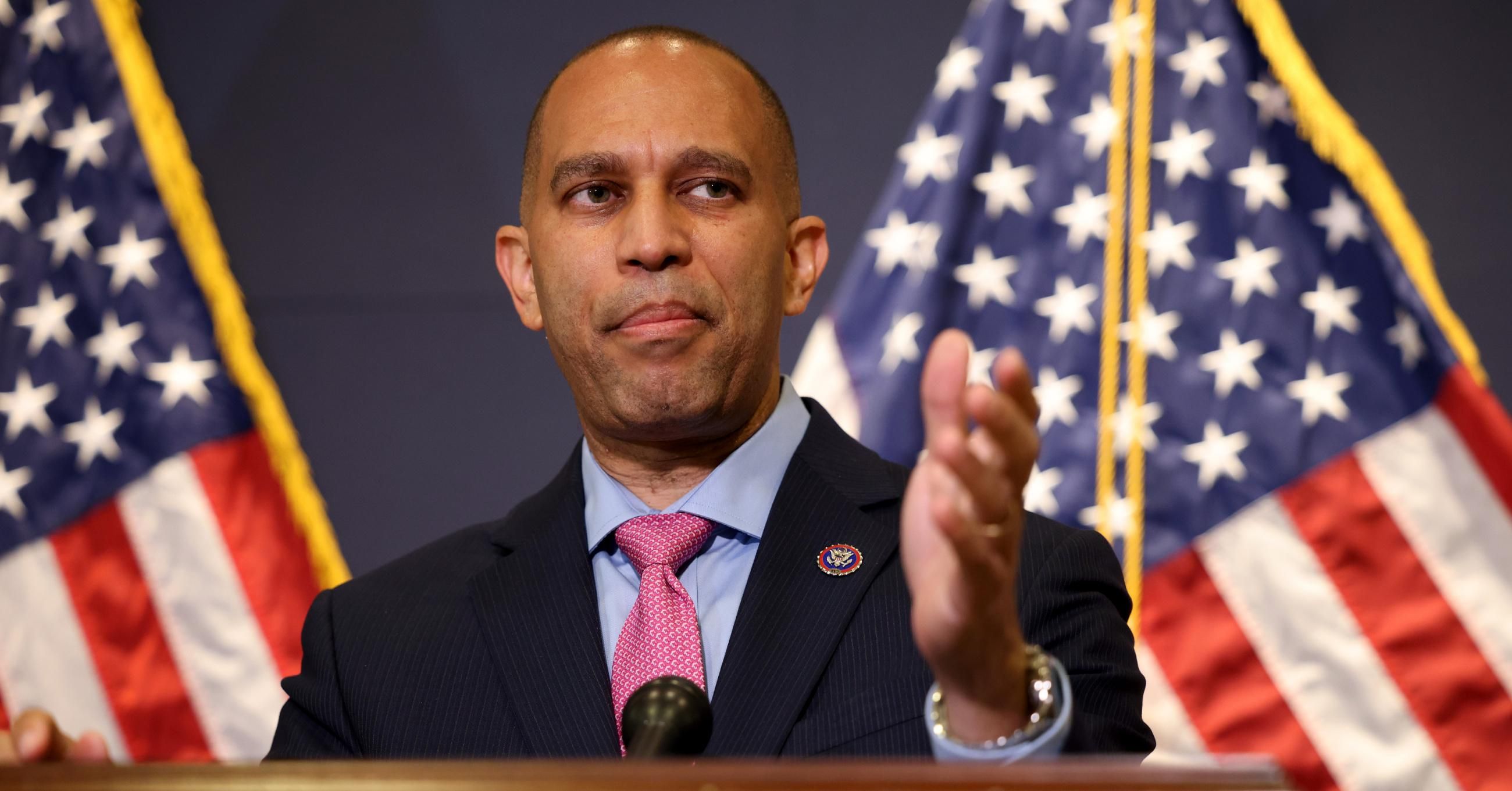
Alexander Burns is a leading political affairs analyst for the New York Times. Unfortunately, even he has accepted the ill-defined political labelism swallowed wholesale by his journalistic colleagues.
“Mr. Jeffries, you know who enabled Trump to win in 2016—the smug Hillary Clinton-dominated Democratic Party. It was not your despised ‘radical left’ who voted for… Bernie Sanders.”
Words to describe Democratic politicians as “moderate,” “centrist,” “center-left,” “center-right,” “leftist,” or House Democratic Caucus Chair, Hakeem Jeffries’ recent denunciatory nomenclature of “extreme left” Democratic candidates are often recklessly bandied about.
Let’s start with the positions that invite journalists to describe politicians as “moderate” Democrats. Rep. Richard Neal (D-Mass.) is chairman of the tax-writing House Ways and Means Committee. His first statement on taking over as committee chair in January 2019 was that he was not in any way going to take up Donald Trump’s massive giveaway tax cuts to the super-wealthy and the giant corporations. He was OK with no hearings and no agenda to end those $1.7 trillion bonanzas, over 10 years, and with revenue losses, which could have been put to good use rebuilding America’s infrastructure.
He also did not move vigorously to expand the budget-starved IRS’s ability to go after hundreds of billions of dollars annually of evaded taxes by the corporate rich. For these reactionary, crypto-Republican stands, Neal, who also has not supported Biden’s modest tax restoration on corporate profits to 28%, is labeled a “moderate.”
The “moderate” and “centrist” label is regularly applied to Democratic members of Congress who oppose full Medicare for All (which has growing majority support in polls), oppose raising the minimum wage to $15 an hour now, oppose legislation for corporate crime enforcement, and other corporate reforms espoused by President Joe Biden, labor law reforms to facilitate union organizing, and consumer protections such as cracking down on over $1 trillion a year in consumer billing frauds and other cheatings. These “moderates” are out of step with polls showing liberal and conservative voters want these latter long-overdue actions.
I wouldn’t call these voters anything but progressively supportive of reforms that benefit the communities where they live, work, and raise their families. If the corporate Democrats running the party keep these and other documented reforms off the table and marginalize the candidates espousing them, they are foreclosing big opportunities to landslide the Trumpian Republicans.
The Trumpsters madcap positions (e.g., “stop the steal,” criminalizing and obstructing voting, claiming that Covid-19, its vaccines, and other protections are conspiracies against liberty) should be jettisoning reckless Republicans out of electoral contention. It is the corporate Democrats strip-mining their progressive base who are letting these Trumpsters remain an electoral challenge. Democrats can’t even find the language to publicly disgrace those reality-denying, southern governors and legislators (the really “extreme,” “fascistic right”) and throw them on the defensive.
Another greatly neglected subject among Democrats is the biggest unpaid-for welfare system over the decades, which is corporate welfare. Zillions of dollars, directly and indirectly, go for subsidies, handouts, giveaways, bailouts, and inflated government contracts, especially in the military business with the Pentagon. Democrats who support this government-guaranteed corporate socialism are called “centrist,” or “moderates,” while progressive lawmakers opposing such raids on the U.S. Treasury are called “the far left.” Really.
Progressive Democratic candidates have their faults. One is they haven’t effectively rebutted the “socialism” charge as double-talking while corporation CEOs are lapping up gigantic checks from Washington. Biden’s human infrastructure proposals are from old Rooseveltian New Deal traditions. Republicans outsourcing enormous numbers of governmental functions to corporate contractors are the real radical fabricators of what Roosevelt warned about in a 1938 message to Congress that:
The first truth is that the liberty of a democracy is not safe if the people tolerate the growth of private power to a point where it becomes stronger than their democratic state itself.
That, in its essence, is fascism—ownership of government by an individual, by a group, or by any other controlling private power. As for the Republican charge against Democrats that they want to “defund the police,” that was the desperation street chant following George Floyd’s homicide. No candidates in congressional races took up that over-general, categorical slogan. On the other hand, the “centrist” Democrats did not move to accuse the Republicans in the last election of “defunding the tax police” at IRS, since 2011, thereby becoming “aiders and abettors” of huge tax evasion, now estimated by the Trump-nominated head of the IRS—Charles Rettig—to be one trillion dollars a year!
Alexander Burns writes about Nina Turner’s defeat last Tuesday in the primary race for an open congressional seat in Cleveland. The main reason she lost is that she let her campaign strategists spend big money on useless or even backfiring repetitive television ads, instead of an on-the-ground game to get out the vote—notoriously low in most primary races.
Mr. Jeffries, whose uncle was an authentic American radical decades ago, declared that “the extreme left hasn’t figured… out that Trumpism and the radical right is the real enemy, not us.” Mr. Jeffries, you know who enabled Trump to win in 2016—the smug Hillary Clinton-dominated Democratic Party. It was not your despised “radical left” who voted for the “New Deal Democrat,” independent Bernie Sanders.
Alexander, you can’t do justice to your analytic mind if you don’t question these labels while not recognizing the exclusion by corporate Democrats of egregious big business abuses that your newspaper writes about regularly.
The Fallacies of Political Labelism
Source: Articles Viral Post

0 Comments